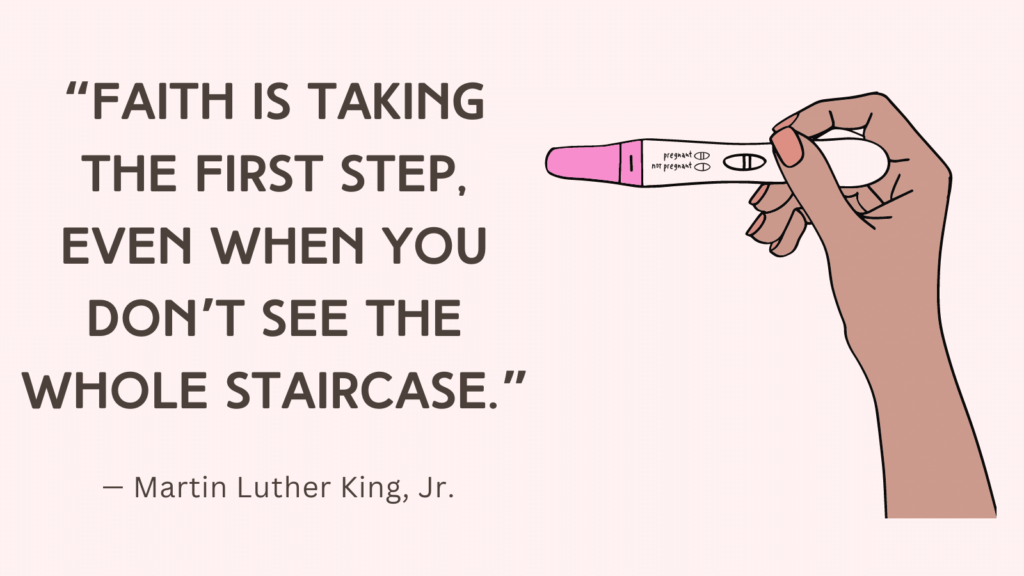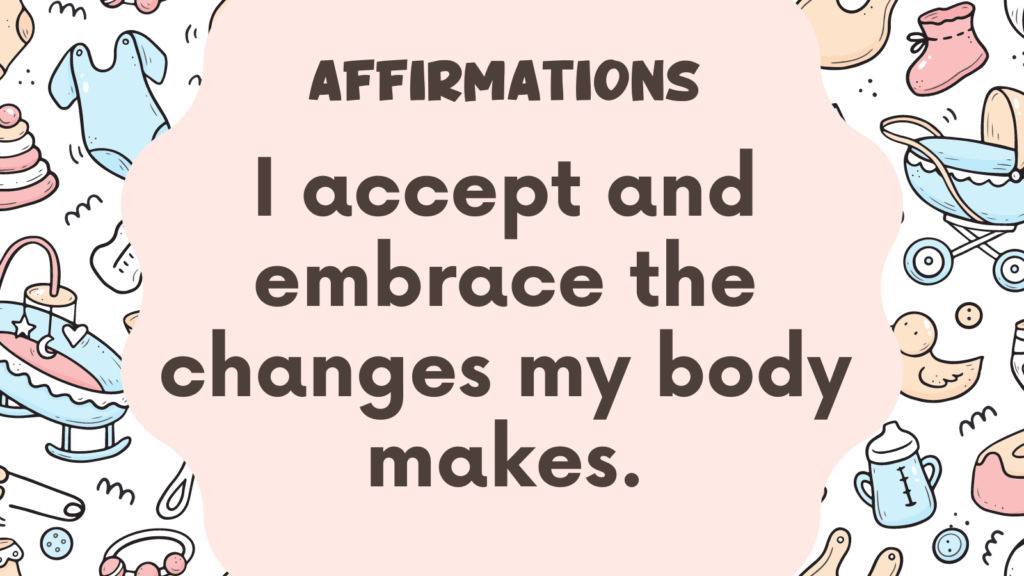In this post, you’re going to find out what to wear to first prenatal appointment.
The First Prenatal Appointment
The first prenatal appointment is an essential step in a woman’s pregnancy journey.
It typically occurs around 6-12 weeks gestation, although it can vary depending on individual circumstances or when the mother suspects that she’s pregnant.
During this appointment, the healthcare provider gathers crucial information about the mother’s medical history, performs a physical examination, and conducts various tests to assess the health of both the mother and the developing baby.
The initial prenatal appointment serves as an opportunity for the healthcare provider to establish a trusting relationship with the expectant mother.
They will discuss any pre-existing conditions, medications, or previous pregnancies, providing a solid foundation for personalized care throughout the pregnancy.
At the first prenatal appointment, the healthcare provider often performs a physical examination, including measuring the mother’s weight, blood pressure, and possibly checking her urine for protein or infection.
They may also conduct a pelvic exam to assess the size and condition of the uterus and perform a cervical screening for any abnormalities.
These examinations help monitor the mother’s overall health and provide a baseline for future comparisons.
Additionally, the healthcare provider usually orders a series of routine tests during the first prenatal appointment.
Ultrasound imaging is another important aspect of the first prenatal appointment. Depending on the gestational age, the healthcare provider may perform an ultrasound to confirm the pregnancy, estimate the due date, and assess the development and viability of the baby.
This non-invasive procedure allows expectant parents to catch their first glimpse of their little one, fostering an emotional connection and helping to alleviate any anxieties.
Related: What To Do After Positive Pregnancy Test?
What To Wear To First Prenatal Appointment
When choosing what to wear to your first prenatal appointment, comfort should be your priority. Here are some suggestions for what to wear:
1. Loose-fitting and comfortable clothing
Opt for loose tops, stretchy pants, or a comfortable dress that allows for easy movement and breathability.
Maternity clothes are not necessary at this early stage, but if you already have them, feel free to wear them.
2. Layers
Consider wearing layers, as the temperature in medical facilities can vary.
This way, you can easily adjust your clothing to stay comfortable.
Related: Best 70 Pregnancy Hacks (+Products Recommendation)
3. Slip-on shoes
Choose shoes that are easy to slip on and off, as you may need to remove your shoes for certain tests or weigh-ins.
4. Supportive undergarments
It’s a good idea to wear comfortable and supportive undergarments during your appointment, as your healthcare provider may need to perform various examinations.
Related: Best Pregnancy Resources (Information, Apps, Books, Podcasts)
5. Avoid Heavy or restrictive clothing
Choose clothing that allows for easy movement and doesn’t constrict your belly or other areas of your body.
Avoid tight-fitting jeans, dresses, or shirts that may be uncomfortable during examinations.
6. Avoid Non-essential accessories
Avoid wearing accessories that may be cumbersome or need to be removed, such as belts, scarves, or complicated footwear.
Simplicity is key in ensuring convenience and comfort during your visit.
Ultimately, wear what makes you feel most comfortable and at ease.
The focus of your appointment will be on your health and the well-being of your baby, so don’t stress too much about your outfit choice.
Questions to Ask on Your First Prenatal Appointment
1. What should I expect during my pregnancy?
2. Are there any dietary or lifestyle changes I need to make?
3. What prenatal vitamins or supplements should I take?
4. Are there any activities I should avoid during pregnancy?
5. When can I expect to feel the baby move?
6. How often should I schedule prenatal appointments?
7. Can you recommend any resources or classes for childbirth education?
8. Are there any warning signs or symptoms that require immediate attention?
9. Is it safe for me to continue any current medications or treatments?
10. What is your policy on emergencies and after-hours care?
11. What tests or screenings will be done during my pregnancy, and what do they involve?
12. How can I reach you with questions or concerns between appointments?
13. Do you have any recommendations for managing common pregnancy discomforts?
14. Do you have any specific advice or recommendations based on my medical history or circumstances?
Remember, this list is not exhaustive, and you should feel free to ask any additional questions or share any concerns you may have.
Building a strong and open relationship with your healthcare provider is essential for a healthy and comfortable pregnancy journey.
Related: Top 20 Questions For Dads To Ask At First Prenatal Appointment
Tips for Feeling Confident
Feeling confident and prepared for your first prenatal appointment is important. Here are a few tips to help you feel more at ease:
1. Educate yourself: Take some time to read about what to expect during the first prenatal appointment. Understanding the purpose of the visit, common tests or procedures, and any questions you may have can help alleviate anxiety.
2. Write down your questions: Jotting down any concerns or questions you have before your appointment can help ensure that you don’t forget to address them during the visit. It can also make you feel more in control and prepared.
3. Bring a support person: Consider having your partner, a family member, or a close friend accompany you to the appointment. Having someone you trust by your side can provide emotional support and help you remember important information.
4. Share your anxieties: Don’t hesitate to express any fears or worries you may have to your healthcare provider. They are there to support you and can provide reassurance and guidance.
5. Take care of yourself: Prioritize self-care before your appointment. Get a good night’s sleep, eat a balanced meal, and engage in activities that help you relax. Feeling physically well can boost your confidence.
6. Remember that you’re not alone: Many women go through the same feelings of uncertainty and nervousness during their first prenatal appointment. Remind yourself that healthcare providers have experience in these matters and are there to help you.
Related: Top 12 Tips On How To Deal With Morning Sickness At Work
Can I Skip Prenatal Appointments?
It is generally not advisable to skip prenatal appointments unless there are extenuating circumstances or you have discussed it with your healthcare provider.
Prenatal appointments are important for monitoring the health and well-being of both you and your baby throughout pregnancy.
They provide an opportunity for your healthcare provider to assess your progress, address any concerns or questions you may have, and ensure that you receive appropriate care and support.
During prenatal appointments, various assessments and tests are typically performed, such as measuring your blood pressure, checking your baby’s growth and position, listening to the baby’s heartbeat, and conducting necessary screenings or lab work.
These visits also give you a chance to discuss your birth plan, ask about any changes in your body or emotions, and receive important guidance on nutrition, exercise, and prenatal education.
Regular prenatal care helps to identify and address any potential issues or complications early on, improving outcomes for both you and your baby.
It allows for timely interventions or treatments if needed, as well as ongoing support and guidance during your pregnancy journey.
Related: Morning Sickness What To Eat When Nothing Sounds Good?
What Prenatal Appointments Should a Husband Attend?
Husbands are encouraged to attend prenatal appointments whenever possible.
These appointments provide valuable opportunities for couples to participate in the pregnancy journey together, ask questions, receive information, and bond with their healthcare provider.
Here are some prenatal appointments that husbands may particularly find beneficial to attend:
1. First prenatal visit: This initial appointment is often comprehensive and covers important topics such as medical history, genetic testing options, and overall pregnancy care. Attending this appointment can help husbands actively engage in the early stages of pregnancy planning.
2. Ultrasound appointments: Ultrasounds are exciting moments where you can see your baby’s development and hear their heartbeat. Sharing these experiences with your partner can create a deeper bond and enhance the joy of anticipating your little one’s arrival.
3. Prenatal classes: Many healthcare providers offer prenatal education classes addressing childbirth preparation, breastfeeding, newborn care, and parenting. Attending these classes together provides an opportunity for both partners to learn and discuss important aspects of pregnancy, childbirth, and early parenting.
4. High-risk or important check-ups: If you or your partner have certain risk factors or medical conditions that require additional monitoring or specialized care, it can be helpful for both of you to attend appointments related to these situations. Understanding the challenges and being involved in decision-making can provide emotional support during potentially stressful times.
5. Third trimester appointments: The final trimester often involves discussions about birth plans, hospital preferences, and postpartum care. Attending these appointments helps ensure that both partners are informed, prepared, and have a clear understanding of what to expect during labor and delivery.
The level of involvement during prenatal appointments can vary depending on personal preferences and schedules.
However, attending these appointments together allows husbands to actively support their partners, build their knowledge, and develop a stronger connection with the baby throughout the pregnancy journey.
Related: What Husbands Should Not Do During Pregnancy (5 Things to Avoid & What To Do Instead)
Can My Boss Deny My Prenatal Appointments?
No, your boss cannot legally deny your prenatal appointments.
In many countries, including the United States, employers are required to provide reasonable accommodations for employees who are pregnant or have related medical conditions.
This includes allowing time off for prenatal appointments and ensuring that you are not penalized for taking that time off.
The specifics of these laws may vary depending on your country and local regulations.
It is always a good idea to familiarize yourself with your rights as an employee during pregnancy and consult your company’s human resources department or an employment lawyer if you have concerns or encounter any issues.
Remember, prioritizing your health and the health of your baby is crucial during pregnancy, and attending prenatal appointments is an essential part of prenatal care.
Open communication with your employer about your needs and any necessary accommodations can help ensure a positive and supportive work environment throughout your pregnancy.
Related: Best 7 Pregnancy Self Care Products
Conclusion
When deciding what to wear to your first prenatal appointment, comfort and ease of access are key factors to consider.
However, it’s important not to stress too much about your outfit.
Health care providers prioritize your well-being over fashion choices, so wear whatever makes you feel at ease and confident during this exciting journey.




